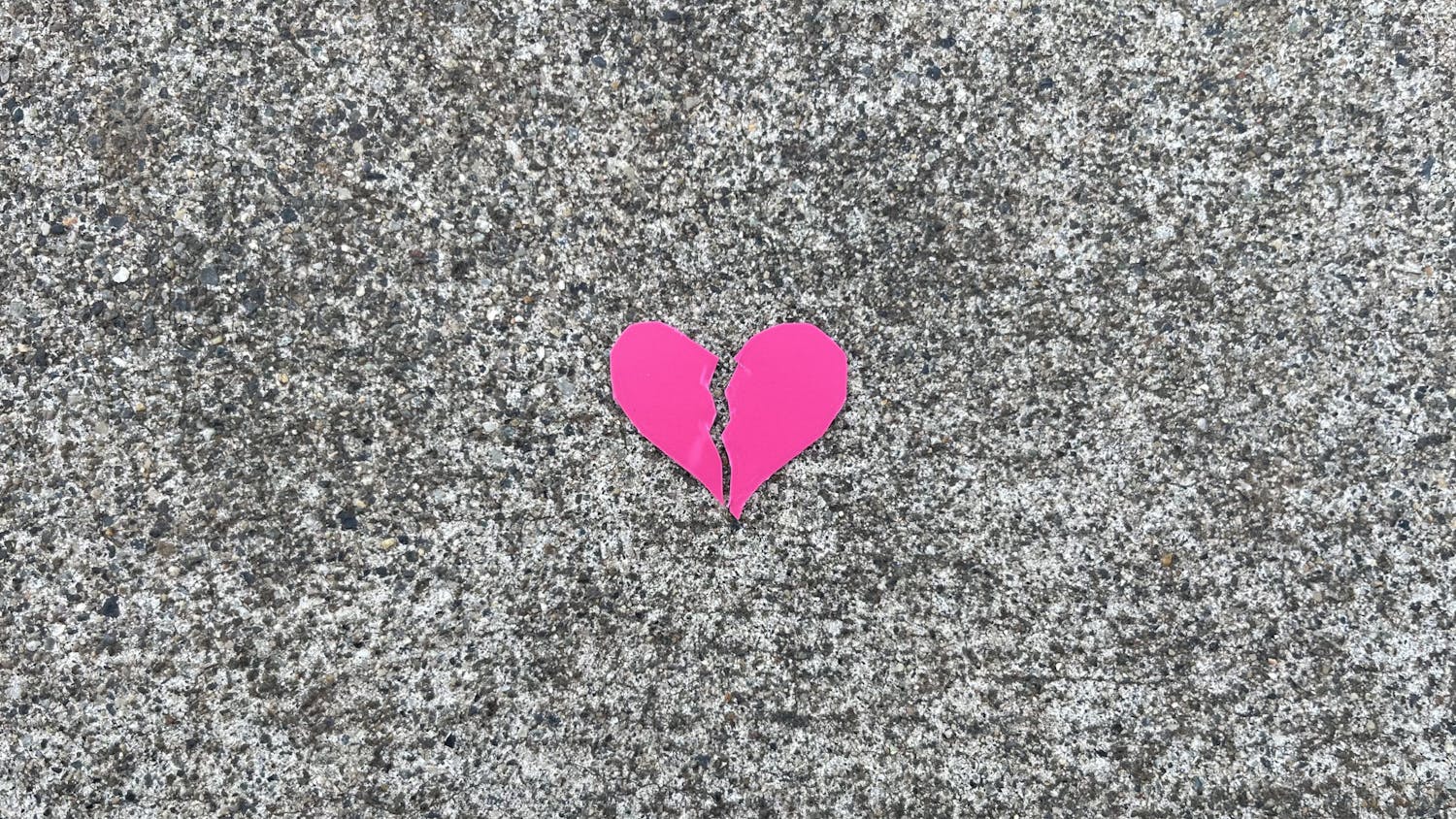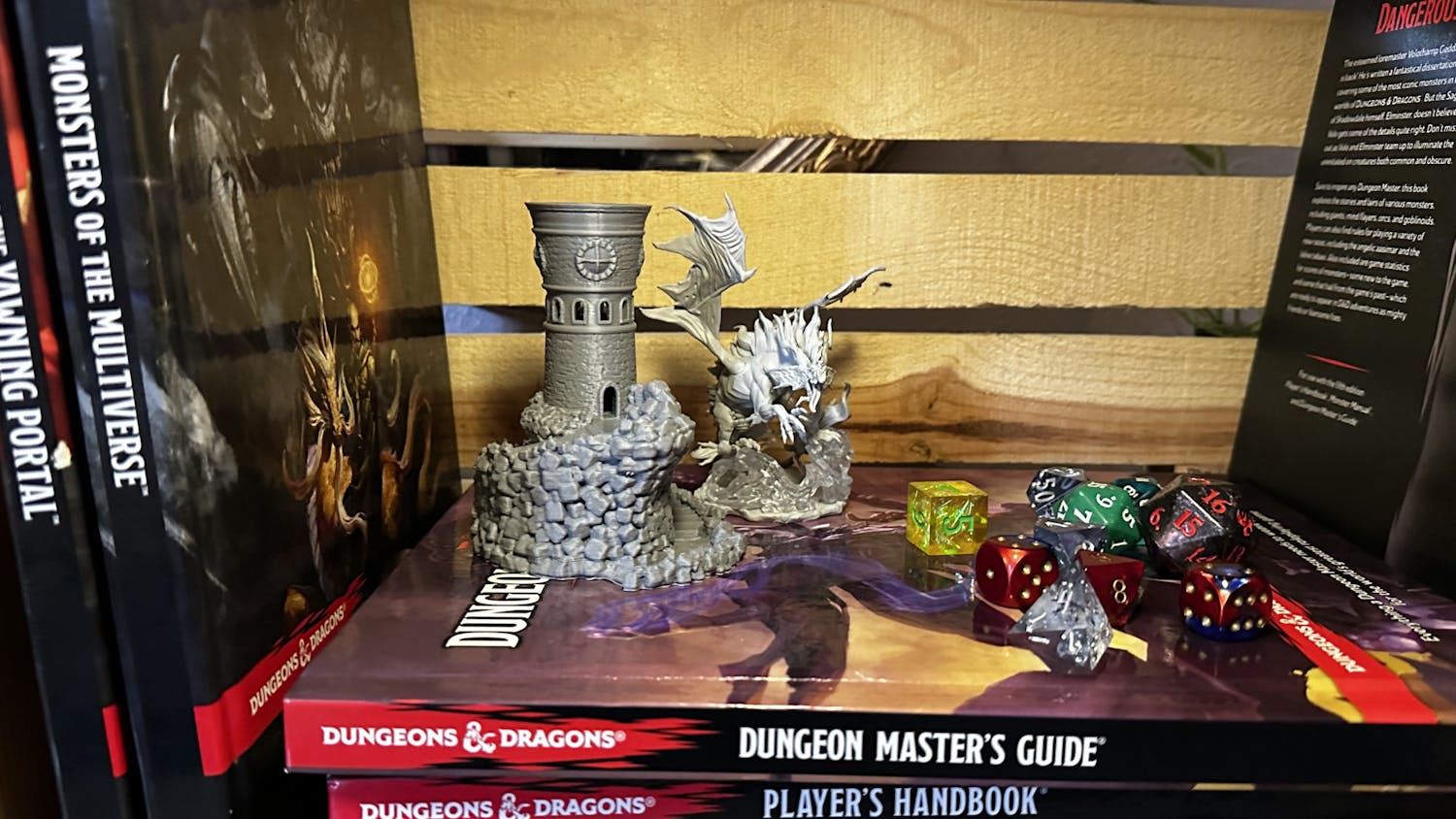Editorial opinion by Emily Feek
The hallmark of a good relationship is not time — at least, not always. Ideally, we form long-lasting relationships that are able to survive conflict, personal differences or time apart.
Not all relationships are strong, though, and our longest relationships aren’t immune. Relationships should grow with us and connect us with people who are supportive. Sometimes we just aren’t friends with the right people, compatible with our family members, or dating the right person for us. And regardless of how long we’ve known these people and been part of each other’s lives, that doesn’t negate the toxicity of a relationship.
Time is a comfort for us. We often cling to relationships because of how long we have known someone — even when the right thing to do is often to re-evaluate and move on. It’s almost easier to do this with romantic partners, simply because these are relationships we form with (sometimes) clear expectations and an understanding that it might not last forever. Friends and family, though, are often labeled as “forever” relationships earlier on in the relationship.
We talk as early as in elementary school, from very young ages, about our best friends forever. We often expect that our friendships will be long-term. “Oh, I’ve known this person for years, they’re a good friend,” you might say, as if the length of time you’ve known someone really qualifies the relationship.
What qualifies a relationship isn’t time, it’s effort and intentionality. It’s the things we share and the way we relate to one another. Regardless of how long you’ve known someone and how good a relationship once was, sometimes people drift apart and end up on different paths. We see it happen in romantic relationships all the time, and friendships or familial relationships shouldn’t be any different.
“Love Is a Choice: The Definitive Book on Letting Go of Unhealthy Relationships” by Robert Hemfelt et al. discusses how interdependence is key to healthy relationships. People who are interdependent have a unique self-concept which is sustainable without relying on others. Codependency, which often leads to unhealthy relationships, is characterized by heavily relying on others for our sense of self and obsessive, enabling behavior.
Time doesn’t always create these rifts, though. Sometimes it’s behavior, plain and simple. While we should acknowledge that we are rarely only victims in a situation, that we often have some level of culpability or contribution to conflict, that doesn’t mean that we aren’t sometimes mistreated.
Forgiveness can be therapeutic, certainly, but it isn’t always the answer. Forgiveness doesn’t necessarily change a person’s behavioral patterns or beliefs, and we have to look out for ourselves and put distance between us and those who hurt us when giving people a second chance doesn’t work out.
“Poisonous Parenting: Toxic Relationships Between Parents and Their Adult Children” by Shea Dunham et al. addresses the difficulty in navigating relationships with “poisonous” parents. Poisonous, in this sense, means that parents use chronically toxic behaviors that often impair a child’s long-term ability to interact and connect with others.
It may seem obvious, but our family, especially our parents, provide the template for our future relationships and our ability to connect. When we learn from poisonous caregivers, we have the potential to feed into a “multigenerational legacy of poison,” replicating the ways we were treated, according to Dunham et al.
That may look like parents who compete with their children, exaggerate expectations, attempt to shape children in their own image for personal benefit rather than the child’s well-being, or parents who are dismissive and unavailable physically, emotionally or financially, according to Dunham et al.
Ultimately, toxic or poisonous family members will look different to each of us. It’s hard to reconcile that reality with the idea that our family should be our biggest source of support, our home. It’s hard too not to follow in their footsteps.
But we have the potential to change. We can salvage relationships and learn from them at times, but sometimes the best option for our own well-being and learning is to move on. We don’t have any obligation to stick by people who have neglected or even abused us (and abuse can be part of any relationship and take many forms). Holding onto these relationships can be damaging, Dunham et al. wrote.
When we’ve adapted and grown with people, even if we’ve grown in different directions, it’s hard not to feel attachment. It’s worth asking yourself if the attachment is beneficial, or if it does more harm than good. The longer we’re with people, the more our interdependency may crumble.





